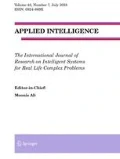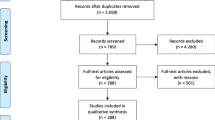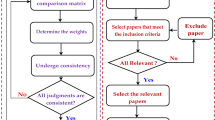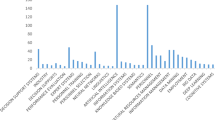Abstract
This study presents an ontology-based computational intelligent multi-agent system for Capability Maturity Model Integration (CMMI) assessment. An ontology model is developed to represent the CMMI domain knowledge that will be adopted by the computational intelligent multi-agent. The CMMI ontology is predefined by domain experts, and created by the ontology generating system. The computational intelligent multi-agent comprises a natural language processing agent, an ontological reasoning agent and a summary agent. The multi-agent deals with the evaluation reports from the natural language processing agent, infers the term relation strength between the ontology and the evaluation report, and then summarizes the main sentences of the evaluation report. The summary reports are meanwhile transmitted back to the domain expert, which makes the domain expert further adjust the CMMI ontology. Experimental results indicate that the ontology-based computational intelligent multi-agent can effectively summarize the evaluation reports for the CMMI assessment.
Similar content being viewed by others
References
Lee CS, Jian ZW, Huang LK (2005) A fuzzy ontology and its application to news summarization. IEEE Trans Syst Man Cybern Part B: Cybern 35(5):859–880
Ferber J (1999) Multi-agent systems. New York, Addison–Wesley
Chen H, Yen J (1996) Toward intelligent meeting agents. IEEE Comput 29(8):62–70
De len D, Pratt DB (2006) An integrated and intelligent DSS for manufacturing system. Expert Syst Appl 30(2):325–336
Soo VW, Lin SY, Yang SY, Lin SN, Cheng SL (2006) A cooperative multi-agent platform for invention based on patent document analysis and ontology. Expert Syst Appl 31(4):766–775
Hamdi MS (2006) MASACAD: a multiagent based approach to information customization. IEEE Intell Syst 21(1):60–67
Lee CS, Jiang CC, Hsieh TC (2006) A genetic agent using ontology model for meeting scheduling system. Inf Sci 176(9):1131–1155
Wang FY (2005) Agent-based control for networked traffic management systems. IEEE Intell Syst 20(5):92–96
Yan H, Jiang Y, Zheng J, Peng C, Li Q (2006) A multiplayer perceptron-based medical decision support system for heart disease diagnosis. Expert Syst Appl 30(3):272–281
Grossklags J, Schmidt C (2006) Software agents and market in efficiency: A human trader experiment. IEEE Trans Syst Man Cybern Part C: Appl Rev 36(1):1–13
Alani H, Kim S, Millard DE, Weal MJ, Hall W, Lewis PH, Shadbolt NR (2003) Automatic ontology-based knowledge extraction from web documents. IEEE Intell Syst 18(1):14–21
Chau KW (2007) An ontology-based knowledge management system for flow and water quality modeling. Adv Eng Softw 38(3):172–181
Corby O, Kuntz RD, Zucker CF, Gandon F (2006) Searching the semantic web: approximate query processing based on ontologies. IEEE Intell Syst 21(1):20–27
Navigli R, Velardi R, Gangemi A (2003) Ontology learning and its application to automated terminology translation. IEEE Intell Syst 18(1):22–31
Morbach J, Yang A, Marquardt W (2007) OntoCAPE-A large-scale ontology for chemical process engineering. Eng Appl Artif Intell 20(2):147–161
Francisco GS, Rodrigo MB, Leonardo C, Jesualdo TFB, Dagoberto CN (2006) An ontology-based intelligent system for recruitment. Expert Syst Appl 31(2):248–263
Burstein MH (2004) Dynamic invocation of semantic web services that use unfamiliar ontologies. IEEE Intell Syst 19(4):67–73
Lee CS, Kao YF, Kuo YH, Wang MH (2007) Automated ontology construction for unstructured text documents. Data Knowl Eng 60(3):547–566
Chrissis MB, Konrad M, Shrum S (2005) CMMI: guidelines for process integration and product improvement. New York, Addison–Wesley
Staples M, Niazi M, Jeffery R, Abrahams A, Byatt P, Murphy R (2007) An exploratory study of why organizations do not adopt CMMI. J Syst Softw 80(6):883–895
Huang SJ, Han WM (2006) Selection priority of process areas based on CMMI continuous representation. Inf Manag 43(3):297–307
Sommerville I (2004) Software engineering. New York, Addison–Wesley
Liu X, Kane G, Bambroo M (2006) An intelligent early warning system for software quality improvement and project management. J Syst Softw 79(11):1552–1564
Greif N (2006) Software testing and preventive quality assurance for metrology. Comput Stand Interfaces 28(3):286–296
Voas J (2003) Assuring software quality assurance. IEEE Softw 20(3):48–49
Wooldridge M (2002) An introduction to multiagent systems. Chichester, Wiley
Author information
Authors and Affiliations
Corresponding author
Rights and permissions
About this article
Cite this article
Lee, CS., Wang, MH. Ontology-based computational intelligent multi-agent and its application to CMMI assessment. Appl Intell 30, 203–219 (2009). https://doi.org/10.1007/s10489-007-0071-1
Received:
Accepted:
Published:
Issue Date:
DOI: https://doi.org/10.1007/s10489-007-0071-1




